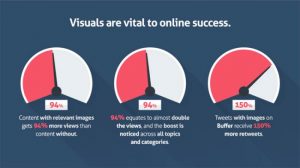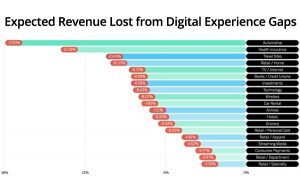
Who are these people called influencers, and why do we put them up on pedestals?
A lot of them are celebrities with huge followings on social platforms like Instagram. B2C brands (businesses that market directly to consumers) partner with these influencers.
Brands pay them to mention and endorse their products (think shoes, jeans, makeup, sports gear) in their social posts. Kylie Jenner has 106 million Instagram followers. According to IZEA, she gets paid around $ 400,000 per sponsored post.
B2B brands (businesses that market to other businesses) also use influencers. It requires a different approach because of the nature of the products (think machinery, transportation, financial services, computer systems and software).
B2B brands partner with industry experts, and ask them to co-create content with them. The experts have prestige, name recognition, and a following. They can influence purchasing decisions in favor of the brand.
What’s the one thing that usually goes unsaid when you read about influencers?
The brands that hire them are big-name brands with large marketing budgets. They can afford to hire influencers.
What if you’re a small business, an independent contractor, a one-person shop? Hiring an influencer is just not an option.
(According to the Census Bureau, the share of U.S. businesses with 20 or fewer workers was 98% in 2018. And consider this: in 2018 (latest data), there were 26.5 million non-employer businesses ( = individual proprietorships), compared to 6.1 million employer firms.)
Here’s the good news: every business has access to a special kind of influencer; perhaps the best kind of all: the happy, satisfied customer.
Happy customers are the people who love your product or service. They tell their friends. They write recommendations and reviews. They advocate for your brand because they had a great experience. They do it because they want to. You don’t have to pay them a cent.
For a small brand especially, brand advocates are a smarter bet than influencers. Why? They have a genuine passion for the brand. They tell others because they want to be helpful: “If you need such-and-such, here’s who to call; they did a great job for me.”
And brand advocates are perceived as trustworthy: we know them: they’re friends, family, neighbors. And no one’s paying them to say they like something.
Check out this Influencers Vs. Brand Advocates infographic from Zuberance:

The best word-of-mouth happens naturally: people are excited; they want to tell others about their great experience. But small businesses need to be proactive. They need a reputation marketing strategy.
That means asking for recommendations. Asking people to post online reviews. If asked, 70 percent of consumers will leave a review for a business. But you have to ask.
One final thought: Competency doesn’t create conversation. Customers expect you to be competent. They expect you to have the skills and do a good job.
To create word of mouth and turn your customers into brand advocates, you need to deliver an exceptional customer experience. You need to do something above and beyond– something unexpected.
You need to come up with a talk trigger— something your customers will feel compelled to talk about: at the gym, the coffee shop, the grocery store, and on Twitter, Facebook, Instagram, and other social platforms.
Header illustration by Mark Armstrong.
Originally published on Mark Armstrong Illustration.
Business & Finance Articles on Business 2 Community
(73)
Report Post





